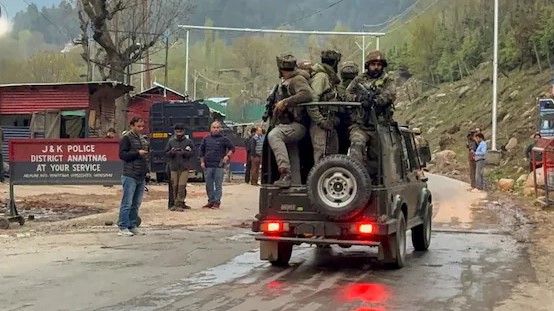The attack was claimed by the militant group Kashmir Resistance, which is reportedly linked to Pakistan-based organizations such as Lashkar-e-Taiba and Hizbul Mujahideen. Indian authorities have accused Pakistan of harboring and supporting these groups, a claim Islamabad vehemently denies. In response, Indian Prime Minister Narendra Modi condemned the attack as a “heinous act” and vowed to bring the perpetrators to justice.
India’s Retaliatory Measures
In the aftermath of the attack, India has taken several significant steps to downgrade diplomatic ties with Pakistan:
-
Visa Revocation: India has revoked all visas issued to Pakistani nationals and has ordered the expulsion of Pakistani diplomats from New Delhi.
-
Suspension of the Indus Water Treaty: India announced the suspension of the 1960 Indus Water Treaty, a vital agreement that governs the sharing of water from the Indus River system. This move has been described by Pakistani officials as “water warfare.”
-
Closure of Land Border: The primary land border crossing between the two countries has been closed, halting all cross-border trade and travel.
-
Reduction in Diplomatic Staff: India has ordered Pakistan to reduce its diplomatic staff in New Delhi by 50%, a measure that is expected to be reciprocated by Pakistan.
Pakistan’s Response
Pakistan has strongly condemned India’s actions, describing them as “baseless allegations” and a violation of international norms. In retaliation, Pakistan has taken the following steps:
-
Suspension of Trade: Pakistan has suspended all bilateral trade with India, affecting various sectors including agriculture and textiles.
-
Closure of Airspace: The country has closed its airspace to all Indian-owned or operated airlines, disrupting regional air travel.
-
Reduction in Diplomatic Staff: Pakistan has ordered India to reduce its diplomatic staff in Islamabad by 50%, mirroring India’s earlier demand.
International Reactions
The international community has expressed concern over the escalating tensions between India and Pakistan. The United States, United Kingdom, and China have called for restraint and dialogue, urging both nations to avoid further escalation. The United Nations has also appealed for a return to diplomatic negotiations to prevent a potential conflict.
The Kashmir Conflict: A Long-Standing Issue
The Pahalgam attack has brought global attention back to the Kashmir region, a disputed territory claimed by both India and Pakistan. The conflict over Kashmir dates back to the partition of British India in 1947 and has led to multiple wars and ongoing skirmishes. The region remains heavily militarized, with frequent ceasefire violations along the Line of Control (LoC).
The Role of Militancy and Cross-Border Terrorism
Militant groups operating in the Kashmir region have been a significant factor in the deteriorating relations between India and Pakistan. India accuses Pakistan of supporting these groups, a claim that Islamabad denies. The presence of such groups has complicated peace efforts and contributed to the cycle of violence in the region.
Economic and Humanitarian Impacts
The escalating tensions have had adverse effects on both nations’ economies. Trade disruptions, particularly in sectors reliant on cross-border commerce, have led to economic losses. Additionally, the closure of the land border has affected local populations who depend on cross-border trade for their livelihoods.
Humanitarian concerns have also emerged, with reports of increased civilian casualties due to cross-border shelling and limited access to medical supplies and services. The suspension of the Indus Water Treaty has raised fears about water shortages in Pakistan, potentially affecting millions of people.
Prospects for De-escalation
The path to de-escalation remains uncertain. While both nations have expressed a willingness to engage in dialogue, the current climate of distrust and hostility poses significant challenges. The international community continues to advocate for diplomatic engagement and confidence-building measures to prevent further escalation and to address the underlying issues fueling the conflict.
Conclusion
The recent developments between India and Pakistan underscore the fragile nature of peace in the Kashmir region. The Pahalgam attack has reignited old grievances and highlighted the urgent need for renewed diplomatic efforts. Without concerted efforts from both nations and the international community, the risk of further conflict remains a pressing concern.




